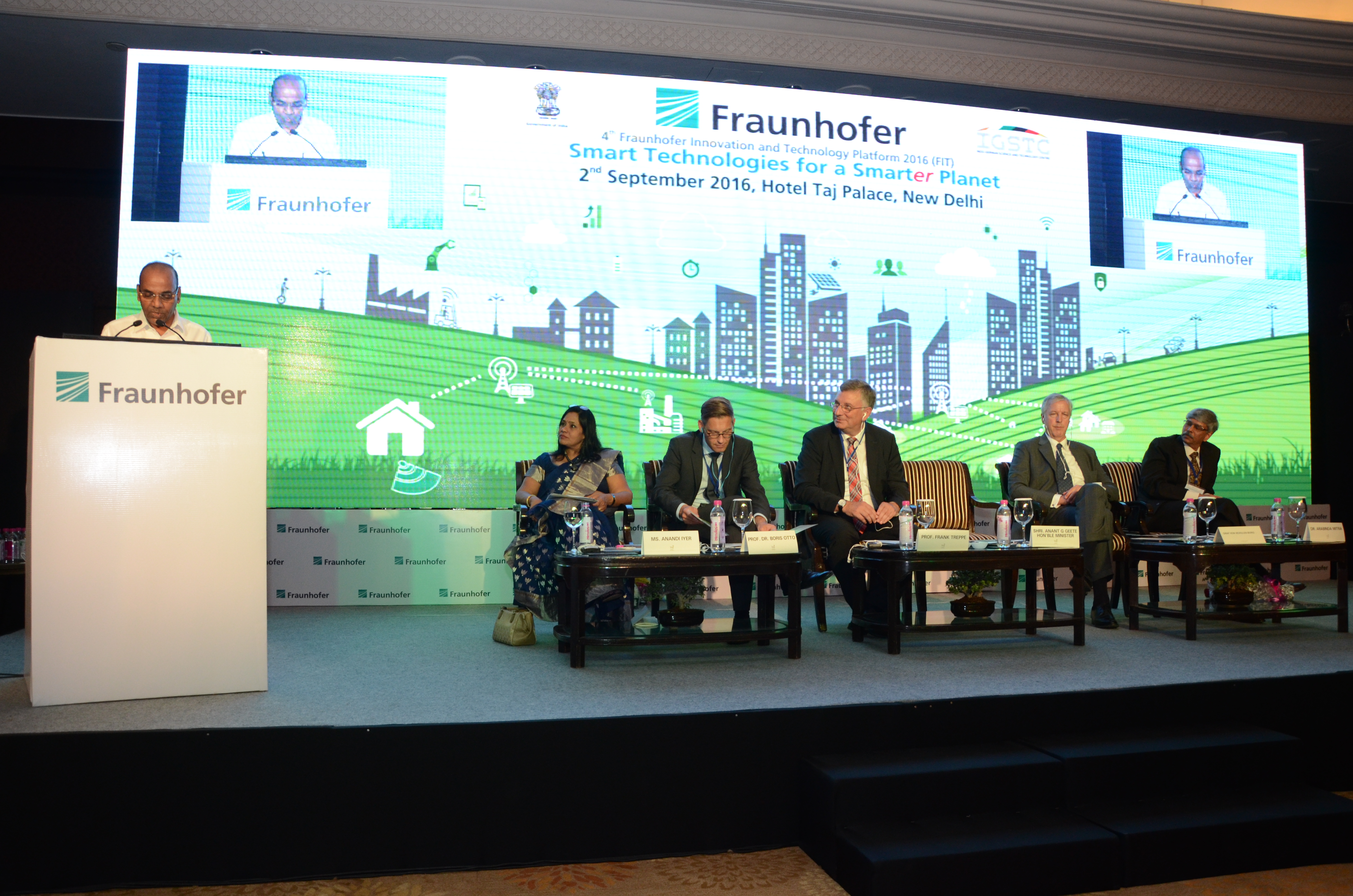Powering Smart Technologies for a Smarter Planet
In the 4th Fraunhofer Innovation and Technology (FIT) Platform, held on Friday 2nd Sept in Delhi, international technology experts bet big on the prospects of International collaboration in Smart Manufacturing, Smart Energy and Smart Cities in India.
The event was in co-operation with Ministry of Heavy Industries & Public Enterprises, Government of India and Ministry of New & Renewable Energy, Power and Mines, Government of India and supported by Indo-German Science & Technology Centre (IGSTC) and was inaugurated by Shri. Anant Geete, Hon’ble Minister, Ministry of Heavy Industries & Public Enterprises (HI&PE), Govt. of India.
The event was held in Delhi as the thematic focus was to warrant participation from senior policymakers and bureaucrats who are major stakeholders and decision makers in the implementation of various Government programs.
Fraunhofer has a number of ready-to-market technologies and products which was showcased to create an immediate interest in the Indian Industry seeking to leapfrog innovation and research. Specific technologies from various Fraunhofer Institutes were displayed with the objective to excite the Indian Industry with ready to market products and technologies for immediate implementation. A powerful presentation by renowned experts from Fraunhofer and Industry experts from India showcased the global scenario in the three core areas of Smart Manufacturing, Smart Energy and Smart Cities and provided suggestions for the road ahead for international cooperation.
'Smart Manufacturing' - Keynote Address: Shri. Girish Shankar, Secretary, Department of Heavy Industry, Govt. of India
Topics discussed: Digital Manufacturing and Industrial Data Space, Electromobility- Smart Mobility combines Smart Manufacturing, Green Advanced Technologies: A Great Way to Greater Benefits in Manufacturing, Designing Smart Components, Connected Adaptive Production - The Role of Manufacturing in Smart Production Environments, Manufacturing in the Indian market: Challenges and Opportunities.
"Smart Energy" - Keynote address: Shri. Dr. Inderjit Singh, Additional Secretary, Ministry of New & Renewable Energy and Power.
Topics discussed: Renewables and their contribution to the Smart Energy Mix , Renewed Push for a more Sustainable Energy Programme in India, Smart Grids - an imperative to ensure reliable energy, View into the future – Foresight as an innovation strategy, Cold Thermal Energy Storage for Load Management of the Power Grid, Securing Energy for India’s requirements.
Smart Cities
Topics discussed: Smart City Labs: Best Practices from Global experiences, The Indian Industry’s participation in the Smart City Programme, India’s Smart City Programme and the role of Multipliers, German Smart City Consortium, What about Smart Villages?, Indo German Water Partnership.
Special Session by Fraunhofer Academy - Capacity building with India - Advanced Training made by Fraunhofer & Fraunhofer Spin Offs: Ready to market Technologies for India followed by a Concluding Plenary Session: High powered Panel Discussion.

